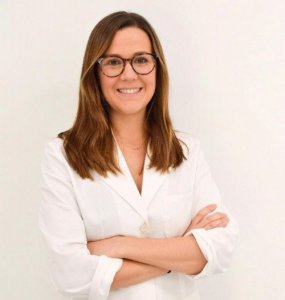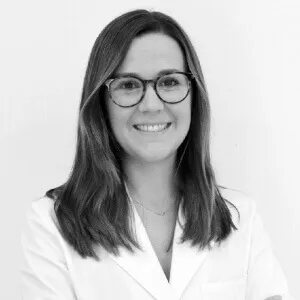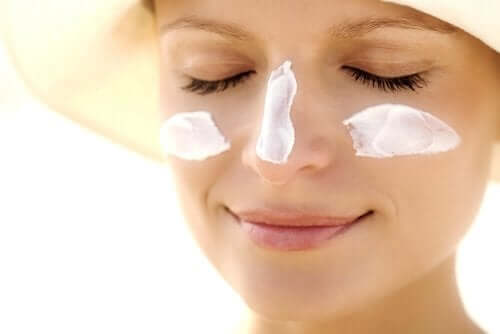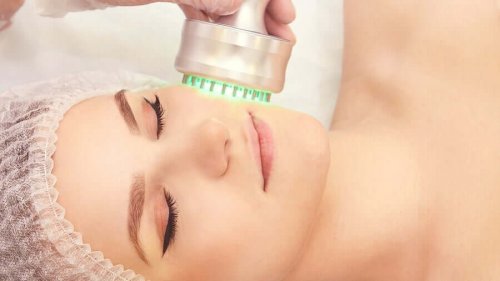Rocío Gil Redondo's Tips for Skin Care and Rejuvenation


Written and verified by the doctor Rocío Gil Redondo
Beautiful skin is healthy skin. Skin requires specialist care and good advice to stay healthy. In the following interview, dermatologist Rocío Gil Redondo talks to us about these interesting topics.
“The sun is one of the major causes of aging, as it leads to loss of skin elasticity, wrinkles, unwanted pigmentations such as melasma or solar lentigines, and vasodilation, especially in the neck and chest.”
-Dr. Gil Redondo-
Your body’s largest organ
The skin is the body’s largest organ. It’s almost 7 feet (2 meters) long and has very basic functions: to protect the body against sunlight, temperature, and bacteria and maintain hydration. The skin allows humans to feel and experience; it’s a channel of extraordinary sensations that requires care.
Everyone dreams of having flawless skin, as its appearance is synonymous with beauty. Thus, many seek the latest treatments to maintain their youth, elasticity and shine. However, there’s a lot more than just the physical aspect.
Atopic dermatitis, rosacea, acne, moles… Many skin conditions require proper care. Skincare primarily involves protection and prevention; you can’t forget that sun exposure is one of the skin’s worst enemies. Skin cancer and premature aging are associated precisely with sun exposure.
Interview with Rocío Gil Redondo: Skincare
Dr. Rocío Gil Redondo has a degree in medicine from the University of Alcalá and a specialty in dermatology from the University Hospital of Guadalajara. She works in various medical centers and also teaches courses and gives conferences.
Something that she can tell us from her dermatologic experience is that magical remedies don’t exist. The most important thing in most cases, such as acne or other skin conditions, is having appropriate skincare knowledge. Aspects such as sun protection, cleaning rituals, and wearing suitable makeup should never be ignored.
Also, periodically checking the moles that you’ve had for a long time or the new ones that you noticed after the last summer also goes beyond mere aesthetics: it’s health and wellness.
Question. It’s common to hear that skincare varies depending on skin type. What are the main skin types and what do we need to consider?
There are mainly four skin types: normal, oily, dry, and combination. To classify them, you must take into account characteristics such as softness, shine, flaking… Despite this classification, each skin may behave differently due to environmental factors, such as the weather.
Question. We know that there are more sensitive skin areas that need particular care. What are they and what can we do to take care of them?
The most sensitive areas are those made up of thinner skin, such as the skin around the eyes and lips. To care for them, you need to moisturize them daily with specific creams for these areas and remember to protect them from the sun.

Question. Today, the elevated risks of sun exposure are particularly worrisome. To what extent do we have to consider this factor when it comes to skincare?
The sun is one of the major causes of aging, as it leads to the loss of skin elasticity, wrinkles, unwanted pigmentations such as melasma or solar lentigines, and vasodilation, especially in the neck and chest.
More important than this is the risk that it poses regarding the development of skin cancer, which may require surgical extirpation with subsequent aesthetic consequences, in addition to the mortality risk of the appearance of certain types of skin cancer, such as melanoma.
Question. Why is it so important to exfoliate and moisturize the skin of the face?
Cleaning the face is important, as it eliminates the environmental dirt that’s deposited over the day, as well as traces of makeup. Moisturizing is important for maintaining skin texture and fulfilling its needs, depending on the skin type.
Exfoliating helps eliminate the cells of the corneal layer, the most superficial skin layer, which the body naturally eliminates after a few days. Therefore, I recommend exfoliation in cases that need it, such as skins prone to clogged pores or irregular textures. I don’t advise it in cases of sensitive skin that is prone to irritation.
This article may interest you: The 10 Best Homemade Remedies To Moisturize Dry Skin
Question. Should we avoid any product or type of makeup?
People with acne-prone skin should avoid comedogenic makeup and creams to avoid future lesions.
Question. There’s growing concern about preventing skin aging. Could you tell us about the most innovative treatments that rejuvenating clinics offer?
One of the most innovative treatments is biophotonic therapy, a treatment that uses a fluorescent light to stimulate collagen production and improve fine wrinkles and acne scars, reduce pore size, and improve skin texture and overall quality.
Also, another treatment is radio-frequency, which heats deep skin layers to stimulate the production of collagen and elastin fibers, improving body and facial flaccidity.

Discover: How to Naturally Increase Your Collagen Production
Question. Could you tell us a bit about atopic dermatitis? We know that it’s a very common skin disease that especially affects newborns. Also, what causes it?
Atopic dermatitis is one of the most frequent reasons for child dermatological consultations. Up to 10-20% of children under age 10 may be affected by this disease in varying degrees. It can even affect the quality of life and sleep in moderate and severe cases. This condition is caused by a genetically predisposed skin barrier alteration that can be triggered by environmental factors. This triggers an inflammatory process that causes redness, itching, and flaking.
Question. Finally, could you tell us what the most common reasons for dermatological consultation are?
Some of the most common dermatologic consultations are for acne, rosacea, seborrheic dermatitis, moles, psoriasis, atopic dermatitis, and viral infections such as viral warts and molluscum contagiosum. The latter of these mostly affect children.
I also frequently see precancerous conditions such as actinic keratosis and skin cancer, especially basal cell carcinoma and epidermoid carcinoma. However, these are more common in elderly adults.
This text is provided for informational purposes only and does not replace consultation with a professional. If in doubt, consult your specialist.








